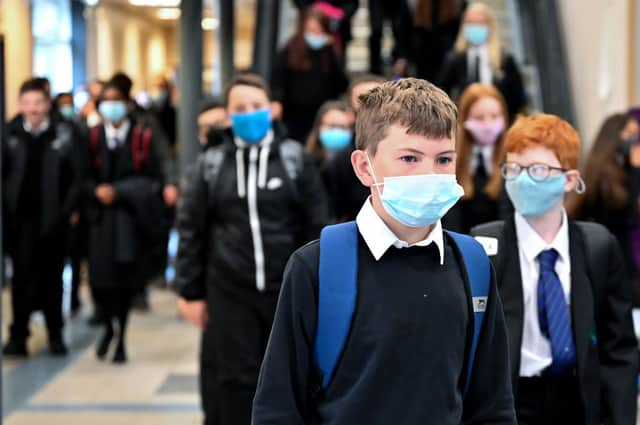Long Covid symptoms rarely last beyond 12 weeks in children and teens


Symptoms of long Covid rarely last beyond 12 weeks in children and teenagers, new research suggests.
Findings from a new study carried out by the Murdoch Children’s Research Institute (MCRI) in Australia suggest that the condition is less of a concern among younger age groups than in adults.
What did researchers find?
Advertisement
Hide AdAdvertisement
Hide AdThe review found that existing studies on long Covid in children and teenagers have major limitations, with some not showing a difference in symptoms between those who have been infected with Covid-19 and those who have not.
The study revealed that after 10 months in circulation, the Delta variant had not caused any more serious disease in children than previous variants, with most cases remaining asymptomatic or mild.
Researchers also identified that children and teenagers with pre-existing health conditions, including obesity, chronic kidney disease, cardiovascular disease and immune disorders have a 25-fold greater risk of severe Covid-19.
A recent systematic review reported severe Covid-19 occurred in 5.1% of children and adolescents with pre-existing conditions and in 0.2% without.
Long Covid among youngsters still poorly understood
Advertisement
Hide AdAdvertisement
Hide AdWhile children infected with coronavirus are usually asymptomatic or have mild disease with low risk of hospitalisation, MCRI Professor Nigel Curtis said that the risks and features of long Covid in young people is still poorly understood.
He said: “Current studies lack a clear case definition and age-related data, have variable follow-up times, and rely on self- or parent-reported symptoms without lab confirmation.
“Another significant problem is that many studies have low response rates meaning they might overestimate the risk of long Covid.”
Dr Petra Zimmermann of the MCRI and University of Fribourg said symptoms of long Covid were difficult to distinguish from those linked to the indirect effects of the pandemic, such as school closures, not seeing friends or being unable to do sports and hobbies.
Advertisement
Hide AdAdvertisement
Hide AdThe MCRI-led review analysed 14 international studies involving 19,426 children and adolescents that reported persistent symptoms following Covid-19.
The most common symptoms reported four to 12 weeks after acute infection included headache, fatigue, sleep disturbance, concentration difficulties and abdominal pain.
Prof Curtis, who is also a professor of paediatric infectious disease at the University of Melbourne and head of infectious diseases at The Royal Children’s Hospital, said it was reassuring there was little evidence symptoms persisted longer than 12 weeks, suggesting long Covid might be less of a concern in children and adolescents than in adults.
However, he stressed that further studies are urgently needed to inform policy decisions on coronavirus vaccines for children and adolescents.
The study is published in the Paediatric Infectious Disease Journal.
This article originally appeared on our sister site, NationalWorld.